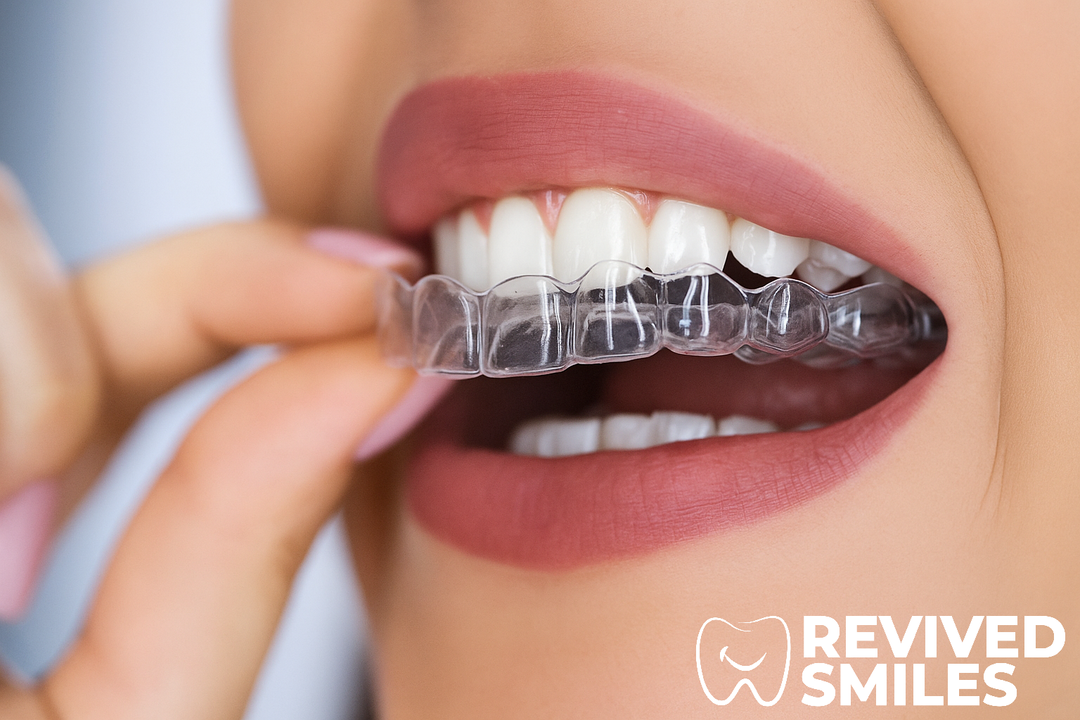Can You Sleep with Dentures? The Pros, Cons, and Best Practices

If you wear dentures, one common question that may come to mind is, "Can you sleep with dentures?" While it might seem convenient to leave them in overnight, it’s important to consider the effects on your oral health. In this detailed guide, we’ll explore the pros and cons of sleeping with dentures, expert advice on when it’s appropriate, and the best practices for maintaining both your dentures and your overall oral health.
Can You Sleep with Dentures?
Yes, technically, you can sleep with dentures. However, most dental professionals advise against it due to the potential health risks. While it may seem easier to leave your dentures in, removing them at night has benefits for both your gums and the longevity of your dentures.
The Pros of Sleeping with Dentures
-
Convenience
Keeping your dentures in overnight saves time, as you won’t have to go through the nightly process of cleaning and storing them. Some people prefer this convenience, especially if they travel frequently or live a busy lifestyle. -
Confidence
If you live with a partner or are in a shared space, you may feel more comfortable and confident keeping your dentures in while you sleep. Dentures can provide a sense of normalcy and avoid any embarrassment about appearance, even at night. -
Faster Adjustment for New Wearers
For those who are new to dentures, sleeping with them during the first few nights may help you adjust more quickly to their fit and feel. It provides constant wear, allowing you to become accustomed to them faster.
The Cons of Sleeping with Dentures
-
Increased Risk of Infections
One of the biggest drawbacks of wearing dentures overnight is the increased risk of oral infections, such as denture stomatitis or thrush. These infections are caused by a buildup of bacteria and fungi in your mouth. Without proper cleaning and allowing your gums to breathe, bacteria can thrive in the warm, moist environment of your mouth. -
Gum and Tissue Irritation
Wearing dentures continuously, especially while sleeping, puts constant pressure on your gums. This can lead to irritation, soreness, and even gum tissue inflammation. Removing dentures at night allows your gums to rest and recover from the day’s pressure. -
Bone Resorption and Gum Shrinkage
When dentures are worn all day and night, it can accelerate bone resorption, a natural process where the jawbone starts to shrink due to lack of stimulation. This can cause your dentures to fit poorly over time, requiring frequent adjustments or replacements. -
Bad Breath and Poor Oral Hygiene
Dentures trap food particles and bacteria, and sleeping with them can lead to bad breath and increased plaque buildup. This can also put any remaining natural teeth at risk of decay or gum disease, especially for those with partial dentures. -
Denture Damage
Leaving dentures in while sleeping can increase the chances of damage due to grinding or clenching your teeth during sleep (bruxism). Over time, this can cause cracks, fractures, or general wear and tear on your dentures.
Why You Should Remove Your Dentures at Night
Removing your dentures at night not only helps preserve your oral health but also extends the lifespan of your dentures. Here are the benefits of giving your gums a break:
- Prevents infections: Regular removal and cleaning reduce the risk of bacterial buildup.
- Promotes gum health: Your gums need time to breathe and recover from the pressure of wearing dentures all day.
- Extends denture lifespan: By giving your dentures a break, you reduce wear and tear, ensuring they last longer.
- Improves oral hygiene: Removing your dentures allows for thorough cleaning, both of the dentures and your gums, tongue, and any remaining teeth.
How to Care for Your Dentures While You Sleep
To keep your dentures in top condition and ensure good oral health, it’s crucial to follow a nightly care routine:
-
Remove Your Dentures Before Bed
Take out your dentures before going to sleep. This gives your gums time to recover and helps reduce the risk of infections or irritation. -
Clean Your Dentures Thoroughly
Before storing your dentures for the night, brush them gently with a soft-bristle toothbrush and a non-abrasive denture cleaner. This removes plaque, food particles, and bacteria that have accumulated during the day. -
Soak Your Dentures Overnight
Place your dentures in a denture cleaning solution or plain water while you sleep. This prevents them from drying out or warping. A dry denture can lose its shape, causing discomfort when worn the next day. -
Clean Your Mouth and Gums
After removing your dentures, clean your gums, tongue, and any remaining teeth with a soft toothbrush. Use a mild toothpaste or simply water to massage your gums and stimulate blood flow, which helps maintain gum health. -
Regular Dental Checkups
Schedule regular visits with your dentist to ensure that your dentures fit well and that your gums are healthy. Over time, your gum and bone structure may change, and your dentist can recommend adjustments or replacements as needed.
What Happens If You Sleep with Your Dentures Regularly?
If you make a habit of sleeping with your dentures in, you may experience several issues, including:
- Chronic gum irritation: Prolonged wear without a break can cause lasting irritation to your gum tissue.
- Higher risk of oral infections: The constant presence of dentures encourages the growth of harmful bacteria and fungi, leading to infections like thrush.
- Bone and gum changes: Your jawbone and gum tissue may shrink more quickly, leading to a poor fit and the need for more frequent adjustments.
Conclusion: Should You Sleep with Your Dentures?
While it may be convenient to sleep with your dentures in, the long-term risks to your oral health outweigh the benefits. To maintain your dentures and keep your mouth healthy, it’s best to remove them each night, clean them properly, and allow your gums to rest. Following these practices ensures that your dentures stay in great condition and your oral hygiene remains top-notch.
At Revived Smiles, we specialize in comfortable, durable dentures that can help you restore your smile. Whether you’re new to dentures or looking for advice on how to care for them, we’re here to guide you every step of the way.





Leave a comment